

Galleries on Education. Advanced Search April 24, 2014 Login | Register | Subscribe Get 2-Week FREE Trial >> Sign Up for FREE E-Newsletters Galleries on Education @import url('/css/special/video_cover_v1.css'); Interviews and video stories on education news and issues from preschool through the 12th grade.
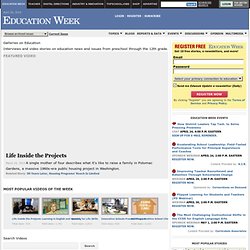
Featured Video. The Role of the K-12 Parent. Illustration The Pathway From Fortress School to Partnership School What does a school that shuts out families look like?
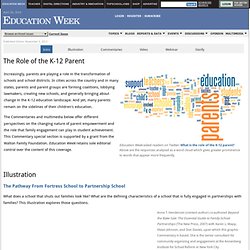
What are the defining characteristics of a school that is fully engaged in partnerships with families? This illustration explores those questions. Response: Embracing & Celebrating Diverse Families - Classroom Q&A With Larry Ferlazzo. Cheryl Suliteanu asked: What are teachers doing to build communication, understanding, and empathy between teachers and families whose lives are dramatically different?
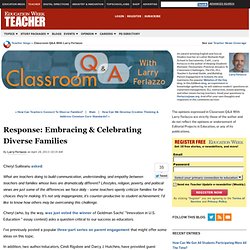
Lifestyles, religion, poverty, and political views are just some of the differences we face daily - some teachers openly criticize families for the choices they're making. It's not only inappropriate, it's counter-productive to student achievement. I'd like to know how others may be overcoming this challenge. Cheryl (who, by the way, was just voted the winner of Goldman Sachs' "Innovation in U.S.
I've previously posted a popular three-part series on parent engagement that might offer some ideas on this topic. MyIEPmeeting. Choice Literacy - Articles & Videos - Full Article. A lanky boy in a hooded sweatshirt was sprawled across a beanbag chair in the back of the classroom.
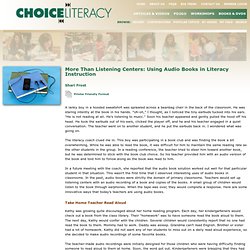
He was staring intently at the book in his hands. "Uh-oh," I thought, as I noticed the tiny earbuds tucked into his ears. Help your child with learning disabilities succeed. If your child, or a child you know struggles with learning or attention issues, this website is for you. « Smart Kids With LD. Parents Get Training to Support Children's Learning. Published Online: January 29, 2013 Published in Print: January 30, 2013, as Parents Get Training to Support Children Behind one-way glass, Nell Robinson, the parenting-skills program manager, coaches Wences Ramirez on how to interact with his son, Diego, at Childhaven in Seattle.
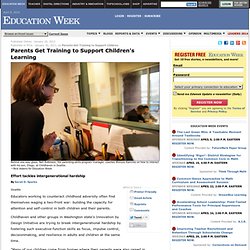
—Nick Adams for Education Week. The Mother-Daughter Project. In 1997, a group of mothers of young girls in western Massachusetts gathered to address the challenges of mothering adolescent daughters in today's world.
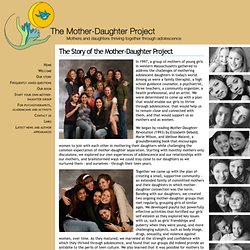
Among us were a family therapist, a high school guidance counselor, a psychiatrist, three teachers, a community organizer, a health professional, and an artist. Harvard, SurveyMonkey Offer Tool to Weigh Parent Engagement. Parents and Community Can Play Key Roles in School Success. UserID:
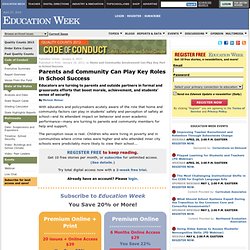
Functional Behavioral Assessment « Smart Kids With LD. By Eve Kessler, Esq.
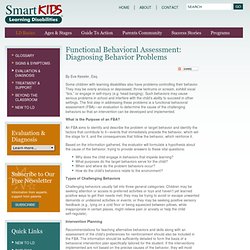
Some children with learning disabilities also have problems controlling their behavior. They may be overly anxious or depressed, throw tantrums or scream, exhibit vocal “tics,” or engage in self-injury (e.g. head banging). Such behaviors may cause serious problems in school and interfere with the child’s ability to succeed in other settings.
The first step in addressing these problems is a functional behavioral assessment (FBA)—an evaluation to determine the cause of the challenging behaviors so that an intervention can be developed and implemented. Interpreting Evaluation Results « Smart Kids With LD. By Donna A.
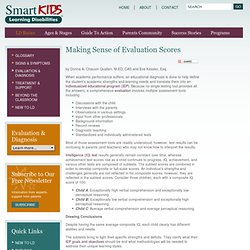
Chauvin Quallen, M.ED, CAS and Eve Kessler, Esq. When academic performance suffers, an educational diagnosis is done to help define the student’s academic strengths and learning needs and translate them into an individualized educational program (IEP). Because no single testing tool provides all the answers, a comprehensive evaluation involves multiple assessment tools including: Schools Are Using Social Networking to Involve Parents. Teaching Ahead: A Roundtable - Is Parent Involvement the Missing Link in School Reform? Archives. Netsmartz. Teaching Ahead: A Roundtable - Serving Low-Income Students Archives. Reading Adventure Packs for Families. Parents who read to their children everyday and talk about what they are reading together promote a joy of reading and literacy achievement.
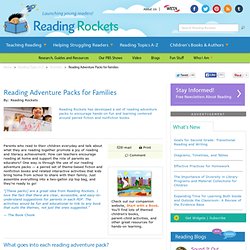
How can teachers encourage reading at home and support the role of parents as educators? One way is through the use of our reading adventure packs — a paired set of theme-based fiction and nonfiction books and related interactive activities that kids bring home from school to share with their family. Choice Literacy - Articles & Videos - Full Article. For many of us who teach, the change of the seasons to spring or fall brings changes outdoors we love -- of flowers newly in bloom, or leaves turning to vivid bright colors.
Unfortunately, in many schools the coming of spring or fall also means administering assessments and preparing for 20-30 early morning and/or evening parent/teacher conferences. Work can become unmanageable, as teachers spend many hours interpreting assessment results and culling through piles of completed student work in order to prepare for conferences. As we work with groups of teachers to analyze assessment data and plan instruction for classrooms, we hear many important questions about sharing data during parent/teacher conferences: Choice Literacy - Articles & Videos - Full Article. As a technology integration specialist, I am often asked to speak to classes about online safety. During those sessions we don't directly address Facebook, other than mentioning that students should be over 13 years old to have an account.
After the snickering subsides, I continue talking about techniques to keep students' identity safe online. It is clear that middle schoolers think they are being safe and that Facebook is different because "you have to be friends to see anything. " Those sessions weren't the time and place to have a deeper conversation about Facebook, but the need was there and the opportunity to educate was long overdue.
After many conversations and brainstorming among colleagues, we decided to host a "Facebook Night" where we would invite community members to talk with them about how Facebook works, privacy settings and concerns, as well as answer questions about managing one's online identity. Family Concerns About Facebook Understanding Privacy Issues Resources: NAMI Brown County. Parent Technology Letter. The Power of the Positive Phone Call Home. When I first started teaching and was overwhelmed by the demands and complexity of the job, my survival strategy was simply to take all the advice that came my way and implement it.
So when my wise mentor suggested that after the first day of school I call all of my second grader's parents, I did so. In spite of my exhaustion, I called each family and introduced myself. I asked a few questions about their child. Partnering with Parents: 12+ Resources for the School Year. Teaching Relaxation to Children with LD « Smart Kids With LD. By Marcia Eckerd, Ph.D. All of us experience anxiety when faced with tasks or situations that feel out of our comfort zone. This is especially true for children with learning challenges who face both academic and peer pressure at school. You’d think schools might teach kids how to relax, but it’s up to parents and professionals to provide that skill. Studies by Harvard researcher Dr. Herbert Benson, author of The Relaxation Response, have found that our bodies can be trained to “turn off” the stress response. Engaging-ELL-Families. Parents' Guide to Student Success.
The Parents’ Guides to Student Success were developed by teachers, parents and education experts in response to the Common Core State Standards that more than 45 states have adopted. Created for grades K-8 high school English language arts/literacy and mathematics the guides provide clear, consistent expectations for what students should be learning at each grade in order to be prepared for college and career.